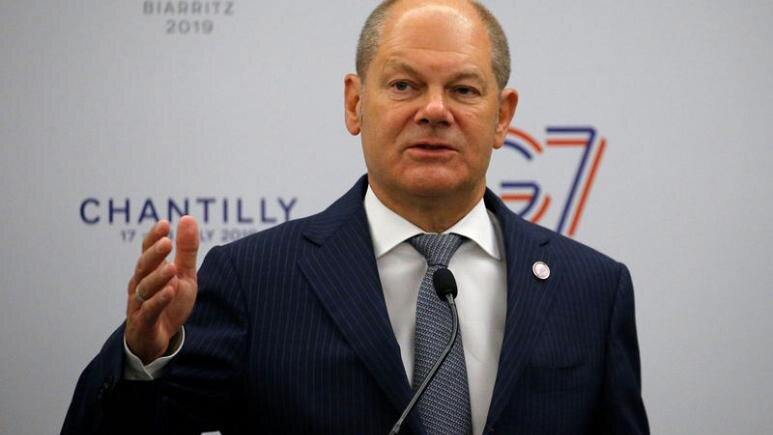Top German official calls for upholding nuclear deal

German Finance Minister Olaf Scholz said on Wednesday that Germany is working with Britain and France to uphold the 2015 nuclear deal, officially known as the Joint Comprehensive Plan of Action.
According to Reuters, he said Germany was coordinating closely with France and Britain, and the goal remained to uphold the nuclear agreement with Iran.
He also appealed for efforts to prevent an escalation of tensions in the Persian Gulf region.
“The goal of all responsible politicians must be to observe the situation very soberly and carefully, and not to sleepwalk into an even bigger crisis,” he said.
Britain, France, Germany, Russia, China, and Iran have been trying to salvage the pact since the U.S. withdrew from it in May 2018 and returned sanctions and imposed new ones.
The European Union announced on June 28 that its special purpose vehicle for trade with Iran, known as INSTEX, has gone into effect.
Tehran says the mechanism is far short of Iran’s expectation. Iran has been insisting that the mechanism should include Iran’s oil purchases.
The remaining JCPOA parties held an emergency meeting in Vienna on Sunday to discuss Iran’s moves in reducing its nuclear commitments and explore ways to save the nuclear deal.
Abbas Araghchi, the deputy foreign minister and a top nuclear negotiator who represented Iran in the meeting, called the talks “constructive”. However, he warned Iran would continue to reduce its nuclear commitments if Europeans failed to salvage the pact.
“The atmosphere was constructive. Discussions were good. I cannot say that we resolved everything, I can say there are lots of commitments,” the senior nuclear negotiator told Reuters.
Helga Schmid, secretary general of the European External Action Service (EEAS), also issued a statement on Sunday saying that “participants reaffirmed their continued commitment to preserving the JCPOA.”
The Austrian Ambassador to Tehran, Stefan Scholz, also said on Tuesday that Vienna is committed to the nuclear deal.
During a meeting with the governor of Gorgan, Scholz said, “All the people of Iran have the right to enjoy economic benefits of the JCPOA.”
On May 8, exactly one year after the U.S. withdrew from the multi-nation nuclear agreement and reimposed sanctions on Iran, Tehran said its “strategic patience” is over and announced a partial withdrawal from some aspects of the pact, saying that the country would no longer adhere to some of the limits on its nuclear activities. It also threatened to step up uranium enrichment if an agreement is not made within 60 days to protect it from the sanctions’ effects.
In follow-up to that deadline, on July 7 Iran announced that it has started enriching uranium to a higher purity than the 3.67% as the Europeans missed the 60-day deadline to devise a concrete mechanism to protect the country from the U.S. sanctions.
Iran has said its decision to reduce nuclear commitments are based on paragraph 36 of the JCPOA.
Paragraph 36 provided a mechanism to resolve disputes and allows one side, under certain circumstances, to stop complying with the deal if the other side is out of compliance.
NA/PA
